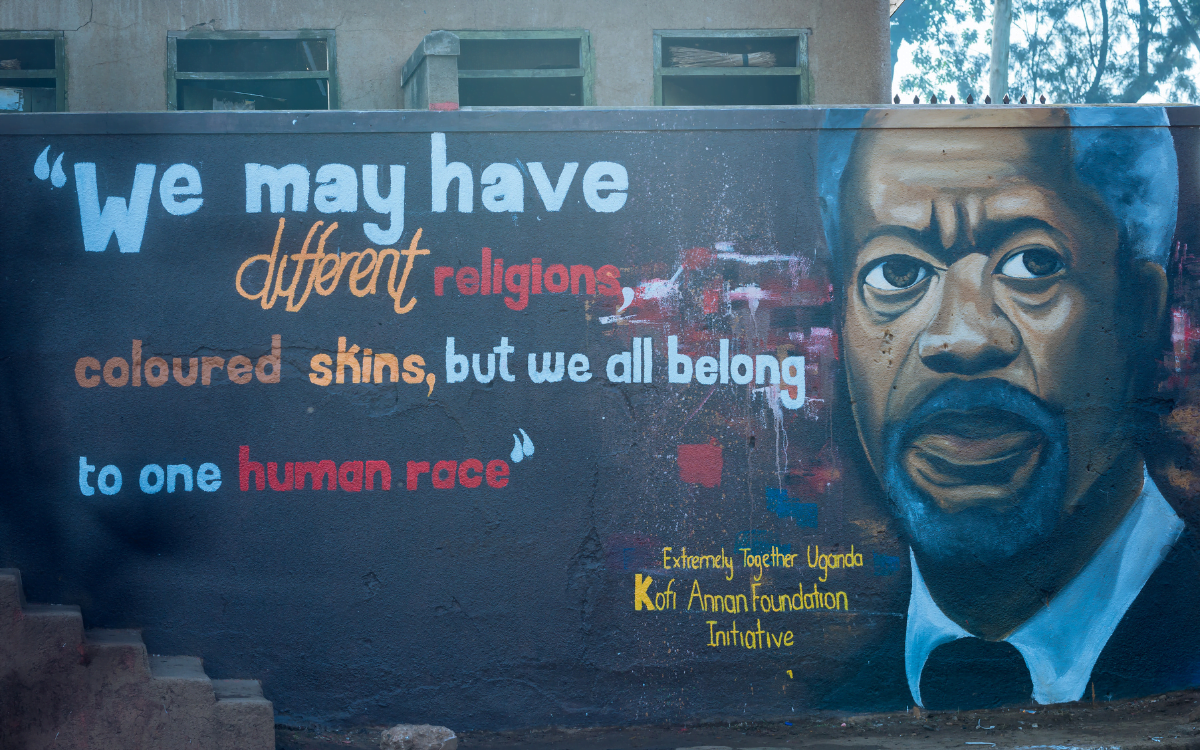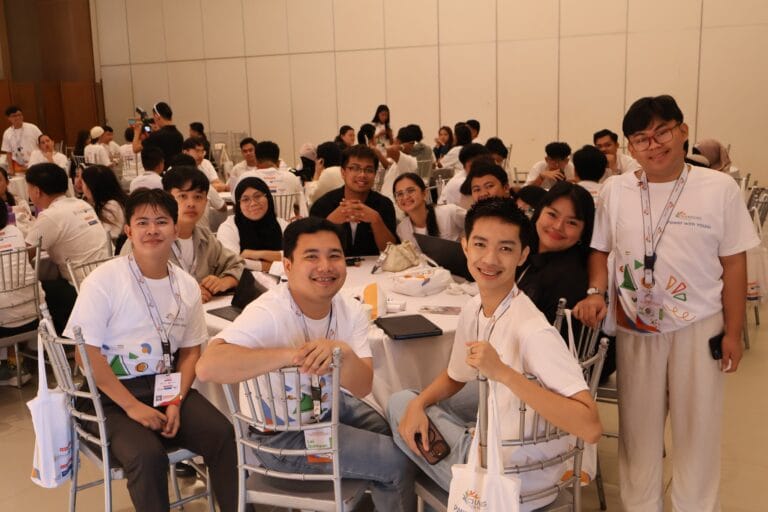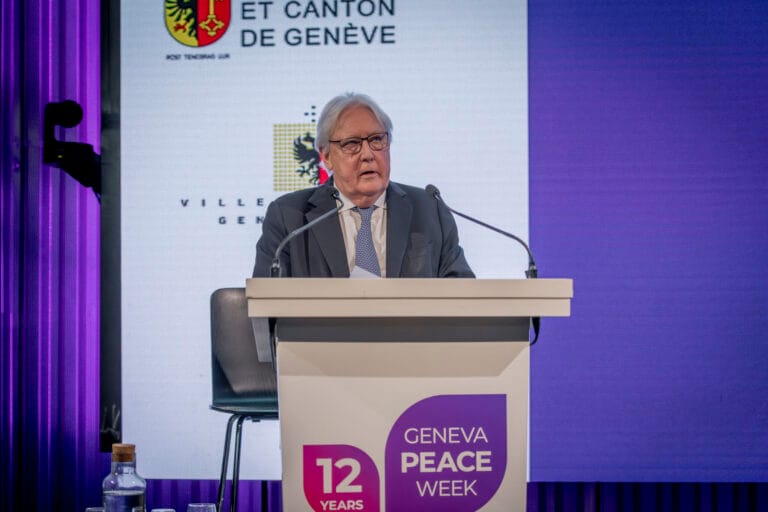Young peacebuilders from Extremely Together Somalia and Extremely Together Uganda Chapters came together to share lessons learned during an online exchange, culminating in a public webinar in March 2021. Here we discover some things they learned after one year of youth-led efforts during 2020, a year like no other.
Four things you need to know about youth-led peacebuilding:
1. Youth exclusion and securitisation by governments remains a significant problem;
2. Youth inclusion in peace and security matters;
3. Young people need increased support to be more effective in their peacebuilding work;
4. International connections are integral for youth-led peacebuilding.
1. Youth exclusion and securitisation by governments remains a significant problem
Some governments tend to treat current issues facing societies, such as the pandemic and elections, from a security perspective. These governments impose curfews and other security measures to combat these issues. Young leaders from ET Uganda have found that this securitisation makes it difficult for young people to engage because the space in which they can peacefully engage with decision-makers shrinks. Young people also are treated as a security risk rather than valuable voices with an original and much-needed perspective.
“Young people are treated as a security risk, rather than valuable voices that have an original and much-needed perspective.”
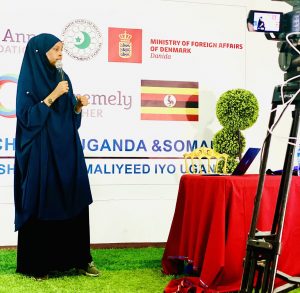
Extremely Together (ET) Somalia agreed that in Somalia, young people face the same issues and shared that “youth are working hard for sustainable peace, but the elders who are the decision-makers rarely give youth the opportunity to engage in peace processes”.
Encouragingly, “Young people are no longer waiting to be invited to have a seat at the table; they are creating their own tables,” said Ilwad Elman, ET Chapter Lead in Somalia and Director of Programs at Elman Peace. Young peacebuilders are using platforms such as Extremely Together to elevate their voices and create their own spaces. Extremely Togethers’ global network makes it possible for young people to form partnerships with other youth groups and to have a collective voice that carries more weight.
“Young people are no longer waiting to be invited to have a seat at the table; they are creating their own tables.”
2. Youth inclusion in peace and security matters
Throughout 2020, the Extremely Together (ET) Uganda and Somalia Chapters demonstrated remarkable agility as they adapted their activities to the new realities. When coming together in person was impossible, ET Uganda moved their community dialogues to the radio, so their voices were still heard. Moreover, young people are ideally placed to know about and to be responsive to youth needs and interests. This perspective has allowed them to engage with their peers more easily than most programmes organised for them by other organisations or government.
Julius Kramer from the United Nations Assistance Mission in Somalia (UNSOM) added, “young people carry an informal and moral authority as trusted community actors”, and they “have a natural understanding of the need for a comprehensive approach to peacebuilding beyond security measures.”
“Young people carry an informal and moral authority as trusted community actors.”
3. Young people need increased support to be more effective in their peacebuilding work
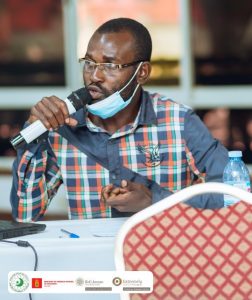
Although young people have been creating their own spaces for participation, they cannot do so by themselves. “Institutions need to work on being more inclusive and increase their capacity to become partners to young peacebuilders,” said Julius Kramer. He added that institutions should move away from merely consulting young people to including young people in all conversations as equal participants.
In fragile states, the international community has tended to invest heavily in institutions and strengthen state infrastructure, which is not enough. The international community must also invest in building capacity among those institutions so that young people can effectively participate in them.
Through its Extremely Together initiative, the Kofi Annan Foundation has observed the positive impact of peer-to-peer learning during activities in Uganda, Somalia and beyond. This approach has allowed young people to build their confidence and skills to participate more meaningfully in decision-making processes at the local, national, regional and international level.
4. International connections are integral for youth-led peacebuilding
Throughout the exchange between young peacebuilders from Uganda and Somalia, one message that the ET youth brought up repeatedly is the importance of cross-border connections. Having a solid international network “will enhance the impact that young leaders can have with their single message of a more peaceful world,” said one of the Chapter young leaders.
Furthermore, for young people, learning and exchanging with their counterparts in other countries has given them fresh ideas and connections and shown them the similarities and differences within their perspectives and actions to prevent violent extremism and build a more peaceful world. These connections at an international level also show young people that they are not alone but part of a global network of young people standing together for peace.
The above list is a selection of the key learnings shared by -and between- the young peacebuilders, but their journey is far from over. Stay tuned for more #ETLessons to come.
The Uganda and Somalia Chapters will expand their activities, work with more communities in their countries, and engage with more decision-makers to ensure young people’s voices are heard.
Find out more about their activities by following Extremely Together on Facebook, Twitter and Instagram.
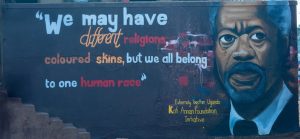
During the Extremely Together Exchange on 22-25 March, over 30 members from Extremely Together Chapters in Uganda and Somalia came together in a hybrid format. The young peacebuilders shared their experiences and lessons learned from their youth-led activities to promote peace and engaged in activities in their communities during the Exchange week. This community action included painting walls with peace messaging in urban marketplaces in Kampala, as well as preparing packages for food relief distribution to affected areas of Somalia outside Mogadishu.
The ET Uganda & Somalia Exchange culminated in a public event, where some of the young leaders participated in a panel discussion. The Danish Ambassador to Uganda, H.E. Nicolaj A. Hejberg Petersen opened the online event. It included: Julius Kramer, Advisor on Youth Peace and Security, Mr Magomu Wilson, Commissioner at the Uganda Prison Services, Hawa Nanjobe Kimbugwe and Sadat Zagah Zziwa from Extremely Together Uganda, and Nasteha Abdirahman and Abdirisak Bashir from Extremely Together Somalia as panellists.
The exchange and panel were moderated by Ilwad Elman, Extremely Together Somalia Chapter Lead and Director of Programs & Development at the Elman Peace Center and Hassan Ndugwa, Extremely Together Uganda Chapter Lead and Executive Director of the Uganda Muslim Youth Development Forum.


